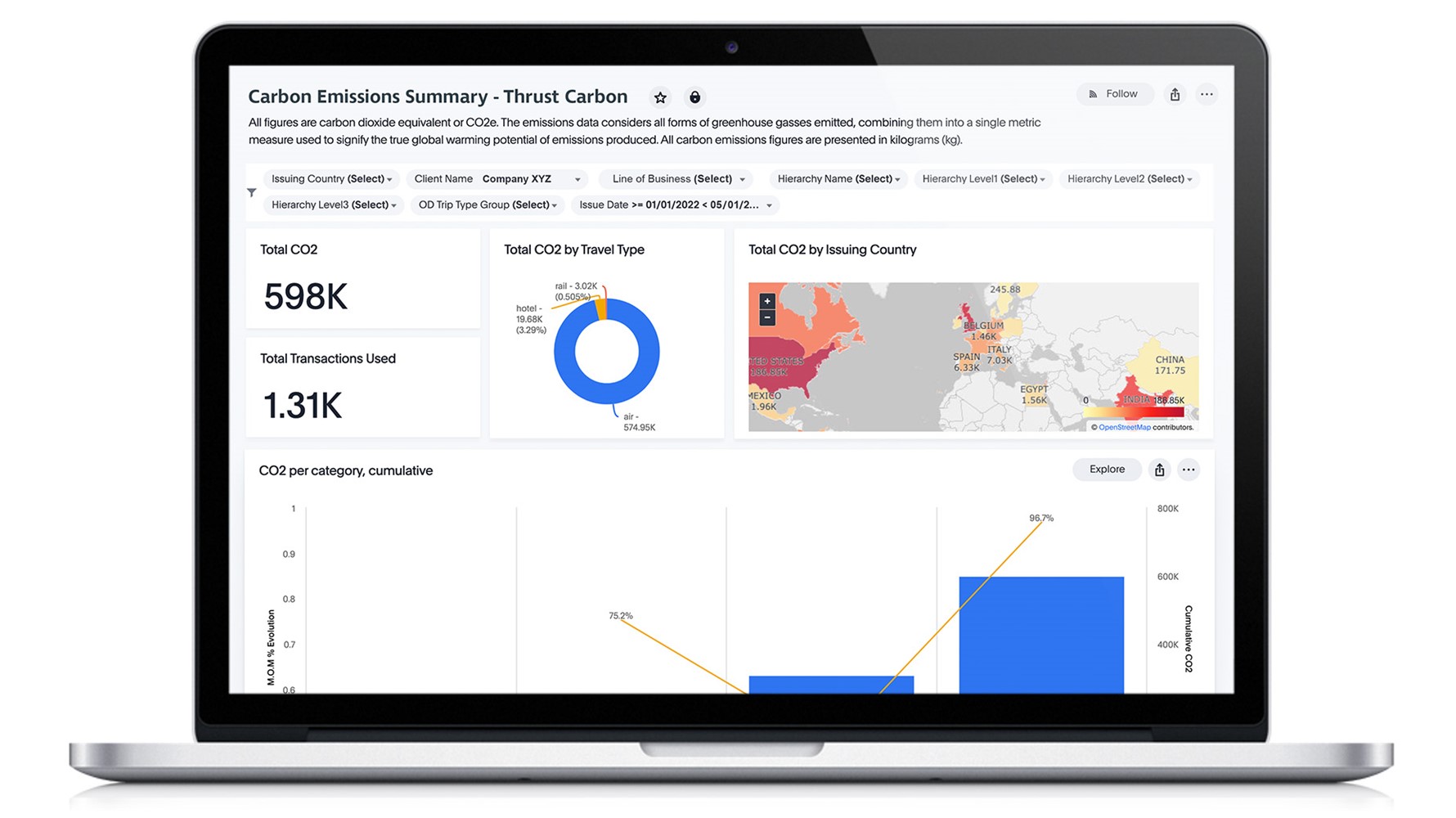Organizations are making great progress with greener travel programs and policies, recognizing the urgency of addressing environmental concerns. Sustainability has become a top priority for businesses worldwide, and business travelers play a crucial role in this transformation. The sustainable tourism market is poised to grow by $335.93 billion during 2023-2027. Here are ways that business travelers can contribute to making their trips more sustainable.
Eco-conscious offsetting
The concept of carbon offsetting is no longer limited to simply purchasing carbon credits. We're witnessing a proliferation of creative solutions to reduce the environmental impact of travel. One notable example is Treedom an organization dedicated to reforestation and community support. Here's how you can get involved:
- Plant trees remotely: Treedom allows you to remotely plant trees, enabling you to choose the species and environment where your tree will grow. With 4 million trees planted globally, the impact is tangible.
- Stay connected: When you participate in tree planting through Treedom, you receive photographs, geolocation information, and updates on the local project's progress and its impact. This innovative approach not only helps offset your carbon emissions but also contributes to biodiversity and supports local communities.
Embrace eco-friendly hospitality
Greener accommodation options: The choice of accommodation plays a significant role in determining the sustainability of business trips. Partnerships like the one CWT has with Thrust Carbon empowers travelers to make eco-conscious choices at the point of sale. Here's how to make a difference:
- Embrace 'less is more': Opt for a smaller hotel room to conserve energy and resources. Additionally, select accommodations close to meeting locations to reduce the need for lengthy taxi journeys, further minimizing carbon footprint.
- Choose alternative transportation: Many hotels have eco-friendly transportation options, such as electric vehicle charging stations, bike rentals, and shuttle services using low-emission vehicles.
- Energy efficiency: Choose hotels investing in energy-efficient lighting, heating, and cooling systems. Smart technology, like motion sensors, is used to minimize energy consumption in rooms and meeting areas.
- Check sustainability credentials: Research the sustainability credentials of potential hotels. Look for properties with clear targets and tangible goals, such as commitments to install solar panels at 50% of their locations by 2025. Explore and understand sustainability standards in hotels by listening to a green standard in hospitality.
Nurturing circularity
Engaging with the circular economy: Travelers are encouraged to consider the principles of the circular economy at every stage of their journey. Here's how to adopt a circular approach:
- Choose sustainable fashion: Rather than opting for fast fashion, support local sustainable fashion labels when buying work outfits. This choice promotes eco-friendly and ethical practices within the fashion industry.
- Sustainable food choices: Ensure that meals are sourced sustainably, meaning they come from ecosystems managed according to environmental standards that promote regeneration. Look for food items labeled with a carbon-neutral certification scheme and opt for dishes made from ingredients from local farms, contributing to the local community.
- Zero-waste travel: Zero-waste lifestyles on the road means making an effort to produce as little waste as possible by using reusable products and choosing businesses that prioritize waste reduction.
- Plastic-free travel: The reduction of single-use plastics is a significant concern for eco-conscious travelers. Promoting eco-friendly travel involves the use of reusable water bottles, utensils, and shopping bags to reduce plastic waste during your journey.
- Eco-friendly transportation: Electric scooters, bicycles, and hybrid or electric rental cars are becoming more prevalent in many destinations. These options reduce air pollution and reliance on fossil fuels.
Business travelers have the power to make a significant impact on the sustainability of their trips. Creatively offsetting emissions, choosing eco-friendly accommodation, and embracing circularity help shape a greener, more environmentally responsible future for business travel. Our choices matter, and together, we can make a positive difference for our planet.






